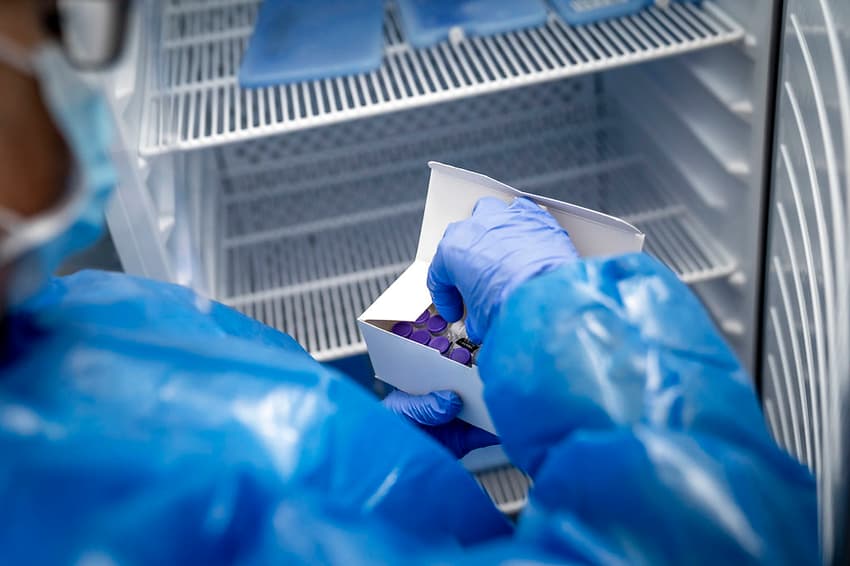US pharma group Pfizer warned on Friday that Covid-19 vaccine deliveries to Denmark and Europe would be reduced "as of next week" until the end of February as the company ramps up its production capacity.
In a written comment, Denmark's Minister of Health Magnus Heunicke expressed the seriousness of the situation.
"We are in a race with coronavirus and the new more contagious virus variant. Therefore, we take the decline in deliveries very seriously.
"The government has therefore at the highest level activated all channels, including contact and dialogue with other EU member states and the EU Commission to secure Denmark's interests", he says.
Advertisement
Director of the Statens Serum Institut, Henrik Ullum, also expressed his disappointed.
"This is really, really annoying news, which we are very disappointed and frustrated about.
"If this was a planned re-adjustment, why does it come so suddenly? We cannot understand that," he told DR Nyheder.
According to the delivery plan from Pfizer, Denmark was to receive 59,475 doses next week. Pfizer has not yet confirmed how many vaccines will now be delivered, according to Statens Serum Institut (SSI).
Heunicke says that the health authorities are in the process of clarifying the scope and consequences of fewer vaccine deliveries.
In addition, work is underway to adapt the vaccination plan to the new information. According to the preliminary vaccine plan, all those living in Denmark who wish to do so will be fully vaccinated by 27 June.
READ ALSO: Why Denmark is leading EU in roll-out of Covid-19 vaccine
Advertisement
Six EU countries, including Denmark, have sent a letter to the European Commission expressing "serious concern" over the delay in the delivery of corona vaccines from Pfizer / BioNTech, according to news agency AFP who have seen the letter.
Health ministers from Denmark, Estonia, Finland, Latvia, Lithuania and Sweden say in the letter that the situation is "unacceptable" and call on the European Commission to pressure Pfizer / BioNTech to "ensure stability and transparency in deliveries".
EU Commission President Ursula von der Leyen said on Friday that she had spoken to Pfizer's CEO, Albert Bourla, following the announcement of delayed deliveries.
"He assured me that all the agreed doses for the first quarter will be delivered in the first quarter", von der Leyen says.
She adds that Pfizer has promised that the company will try to reduce the delay as much as possible as well as make up for lost time as soon as possible.
The reduction is due to the fact that the factory in Puurs, Belgium, needs to be upgraded so that 2 billion doses can be produced per year compared to 1.3 billion before.
"This means that a significantly increased number of doses will be available for the countries from mid-February onwards", Pfizer states.
The Pfizer vaccine has been used by Denmark since it commenced its vaccination programme on December 27th.
Vaccines from Moderna, the second producer to be approved for supply by the European Medicines Agency, began arriving in the country last week.
Latest figures show that Denmark has now administered 147,115 Covid-19 vaccinations, around 2.5 percent of the population.
Five Danes have received two doses of the vaccine and are now fully vaccinated according to daily vaccination figures from the Statens Serum Institut (SSI) on Saturday.
READ ALSO: COMPARE: How fast are European countries vaccinating their populations?

Join the conversation in our comments section below. Share your own views and experience and if you have a question or suggestion for our journalists then email us at [email protected].
Please keep comments civil, constructive and on topic – and make sure to read our terms of use before getting involved.
Please log in here to leave a comment.